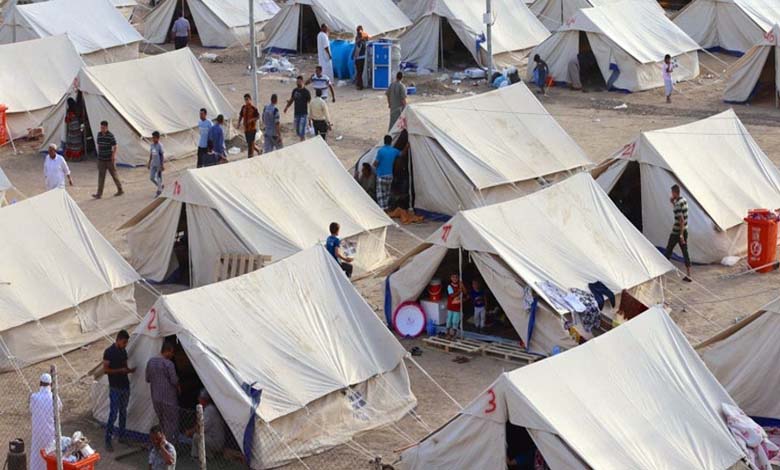Will Iraq’s Plan to Rehabilitate Returnees from Syrian Displacement Camps and Prevent Extremism Succeed?

Iraqi authorities have begun implementing a comprehensive plan to rehabilitate their citizens returning from displacement camps in northeastern Syria, especially the Al-Hol camp, known as one of the most dangerous hubs of extremism in the region.
-
UN Support for Regularizing Their Status: How Will the Iraqi Government Deal with Returnees from Al-Hol Camp?
-
The tragedy of Al-Hol camp: Lives caught between the hammer of crises and the anvil of homeland rejection.
The plan, overseen by the Counter-Terrorism Service, aims to prevent the resurgence of radicalization and recruitment among the returnees and to reintegrate them safely into Iraqi society.
According to a report published by Middle East Online, the initiative responds to an urgent need to address the security and humanitarian challenges of Iraqis detained in Syrian camps following the collapse of ISIS. The plan includes psychological and behavioral rehabilitation programs, along with strict security screenings to distinguish civilians from those directly involved or affiliated with extremist groups.
-
Murders committed by ISIS cells in Syria’s al-Hol camp
-
Crimes Against Humanity and Genocide: UN Commission Presents Evidence Indicting ISIS in Iraq
Iraqi sources indicate that the process goes beyond simply returning individuals to their home areas. It involves placing them in specialized centers where they receive life-skills training, psychological and social follow-up, as well as logistical support for themselves and their families.
Children will be integrated into the education system, while women will be supported in rebuilding stable lives outside the cycle of violence and marginalization.
-
After a series of government dismissals, fears of the return of the political crisis in Iraq
-
Political crisis in Iraq: 3 possible scenarios
This step represents a qualitative shift in how Iraq addresses the returnee file. The government seeks to avoid previous mistakes, where lack of oversight allowed some individuals to revert to extremism or join sleeper cells. Baghdad is banking on this initiative to reduce the ideological influence still maintained by some terrorist groups in the camps.
The Al-Hol camp, which houses thousands of women and children affiliated with ISIS, remains one of the most complex issues. Security experts warn it could become a new breeding ground for extremism if not dealt with methodically. The United Nations has repeatedly expressed concern over the camp’s conditions, urging countries to repatriate their nationals and rehabilitate them in line with humanitarian and legal standards.
-
After the events of Geweran prison and the operations of ISIS in Iraq… Where does the organization get their money?
-
Fears that ISIS may exploit regional wars to re-emerge in Iraq… Details
As new groups of returnees prepare to return to Iraq, the question remains: can these programs achieve tangible results in a post-conflict environment where security, social, and political challenges intersect? The plan’s success will depend on the seriousness of its follow-up and the coordination among the country’s various institutions.












